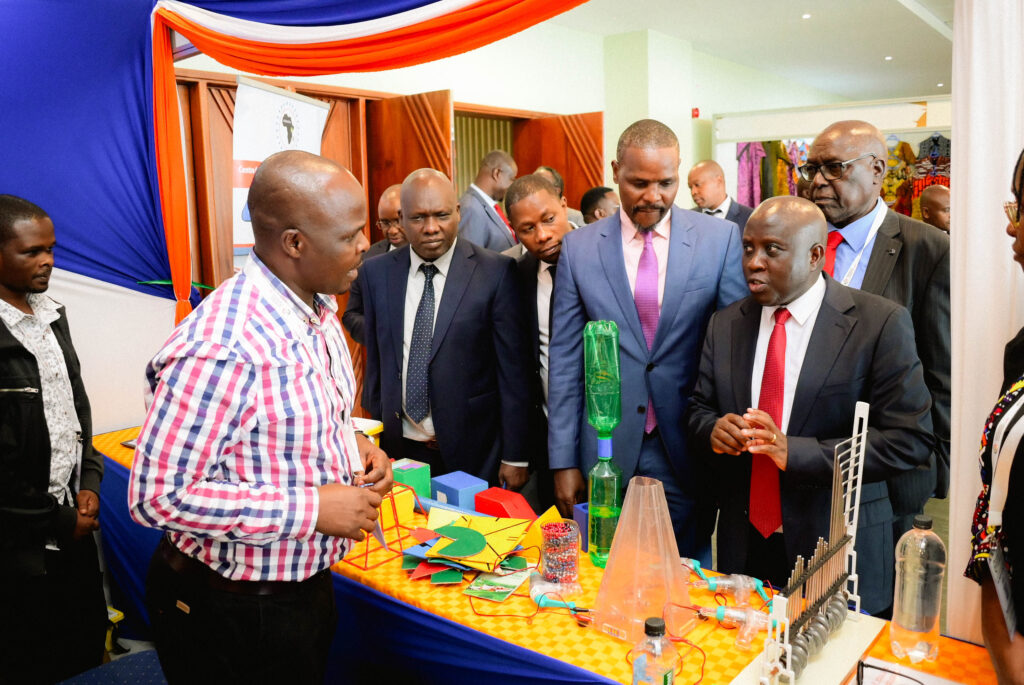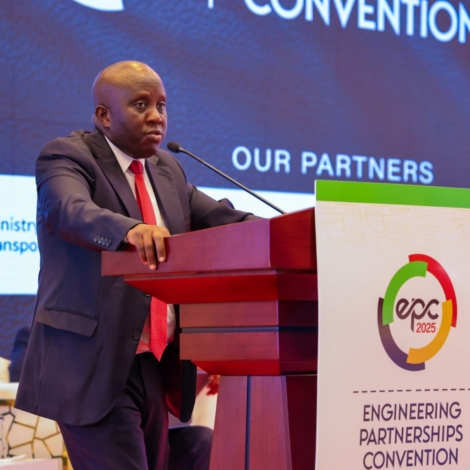A theme that emerged over the course of two days of keynotes and presentations at the Sixth Engineering Partnership Convention in Nairobi this month was that Kenya is in the midst of a digital transformation. Thousands of kilometers of new fiber and 100 digital hubs are evidence of the change underway. In fact, the transformation may be driven by interconnectivity, both through new infrastructure and new cooperation between people in disparate fields. The Engineers Board of Kenya organized the event that convened policymakers, industry leaders, academics and engineers.
EPC 2025: The Digital Transformation
“Kenya has positioned itself as a vibrant and dynamic tech ecosystem, home to numerous tech hubs, incubators, and accelerators fueled by a young, tech-savvy population, competitive labour costs compared to Western markets, a reliable and… pic.twitter.com/CzKc5zQdWb
— Engineers Board of Kenya (@EngineersBoard) May 7, 2025
People from those markedly different backgrounds exchanged their ideas on shaping the future of Kenya’s digital economy. The emphasis was on the role of engineering. Participants examined how engineering is advancing sustainable growth through green technology, and they underscored the expanding influence the field has in Kenya’s transition to a digital-first economy.
“Digital Transformation is revolutionizing engineering,” John Tanui, Principal Secretary for the State Department for ICT & Digital Economy, said in his keynote. “The digital revolution in Africa is no longer a distant dream; it is here, transforming how we live, work, grow our economies, and how engineering must embrace emerging technologies like AI, IoT, and blockchain to drive innovation.”
Kenya has positioned itself as a dynamic tech ecosystem, home to tech hubs, incubators, and accelerators fueled by a young, tech-savvy population, competitive labour costs, reliable internet infrastructure, and strategic geographical location.
The Kenyan government is enhancing its digital transformation by implementing a 13,500 km fiber optic network. The Digital Transformation plan has seen the construction of 38 out of 100 planned digital hubs and the establishment of 280 hubs in Technical and Vocational Education and Training (TVET) institutions.
“AI is here to stay, we must embrace it. Technology continues to improve every aspect of our lives, from how we communicate and work, to how we learn and solve problems. And with challenges such as cyberattacks, and data privacy/confidentiality, prioritising secure systems and… pic.twitter.com/dP9YwXyB4S
— Engineers Board of Kenya (@EngineersBoard) May 7, 2025
According to the latest data analysis by AITools, Kenya emerged as a leading nation in Artificial Intelligence (AI) adoption, ranking third in the world. AITools explores global usage patterns and regional adoption trends across more than 10,500 AI tools.
“AI is here to stay; we must embrace it,” Dr. Mary Onsarigo, Senior Science Analyst at the Kenyan National Commission of Science, Technology and Innovation (NACOSTI), said. “Technology continues to improve every aspect of our lives, from how we communicate and work to how we learn and solve problems. And with challenges such as cyberattacks and data privacy/confidentiality, prioritising secure systems and protocols isn’t just important, it’s essential. Responsible and ethical use of these tools must be at the centre of every digital strategy.”
Meanwhile, Kenya has made progress in developing its engineering capacity. Currently, there are more than 37,000 trained engineers, and the number of professional engineers has risen from 2,700 to over 4,000 in just three years. “I commend the Engineers Board of Kenya and the Commission for University Education for achieving 100% accreditation of engineering programs at 15 local universities, Dr. Festus K. Ng’eno, PS Environment and Climate Change, said.
“We must ensure that all graduates transition into structured training,” Dr. Ng’eno added. “I call on all infrastructure ministries, county governments, and private sector partners to support 100% coverage of Graduate Engineer (GE) training, aligned with the national target of 10,000 trained, industry-ready engineers by 2028.
Engineering education in Kenya is progressively adapting to meet the demands of a digital world through curriculum updates, technological integration, industry collaboration, and research emphasis. Continued efforts to address existing challenges will further strengthen the capacity of engineering graduates to contribute effectively to national development and global competitiveness.
By the time the doors closed on the convention, the high-level takeaways may have been that engineers are not working alone–cross-disciplinary partnerships are needed and inevitable–and engineers are taking a bigger role in the nation’s economic development. As the digital landscape opens in Kenya, engineers are vital in building a smarter, more efficient and more sustainable future.

John Tanui and Dr. Festus K. Ngeno engage with an exhibitor at the convention. Photo: Public domain
About the Author
Mercy C. Wanjiku Nduati is the Engineering for Change Editorial Fellow for 2025. She also works on the editorial staff of the Vennomax Media Network that publishes the Industrial Journal magazine. And she has written for the magazine Kenya Engineer, published by the Institution of Engineers in Kenya. She holds a bachelor’s degree in communication and media from Egerton University.

